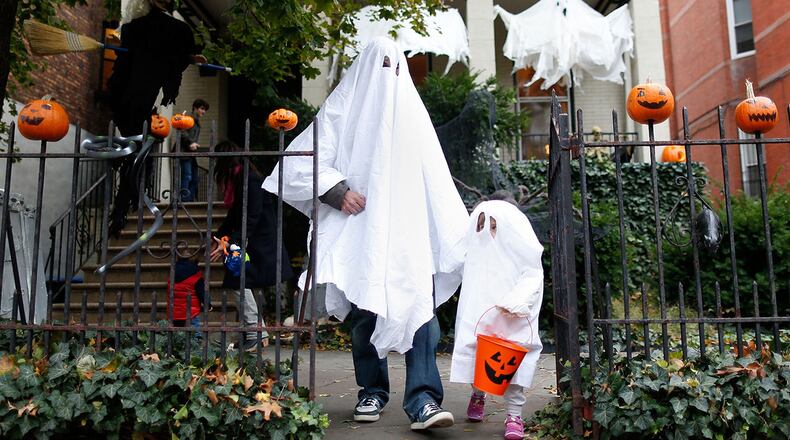Last year's petition to move Halloween to the last Saturday in October is once again gaining momentum months ahead of the holiday.
The Halloween & Costume Association's call to President Donald Trump has garnered more than 69,000 signatures of its 75,000 goal as of 9 a.m. Friday.
Moving Halloween to the last Saturday of the month, the organization says, will make trick-or-treating (and partying) safer, longer and generally more stress-free and enjoyable.
The association lists a few safety tips for parents on the petition, too, urging kids to wear clip-on lights or other high visibility aids during nighttime trick-or-treating to avoid auto-related injuries. According to the National Safety Council, children are more than twice as likely to be hit by a car and killed on Halloween that on other nights.
Millennials, too, can benefit from a Saturday Halloween, because, as the petition states, “51% Of Millennials say Halloween is their favorite holiday, why cram it into 2 rushed evening weekday hours when it deserves a full day!?!”
Sounds like a practical change, but there’s more to Halloween than the superhero costumes, the buckets of candy and horror movie marathons.
Halloween's spooky origins come from an ancient Celtic festival for the dead called Samhain (or "Summer's End").
The Celts, who thousands of years ago lived in what is now Ireland, the United Kingdom and northern France, celebrated Samhain on Nov. 1 to mark the end of summer and the harvest, and the beginning of a new year, kicking off with the bitter cold winter, a season typically associated with death.
According to History.com, the Celts believed the night before the new year, "the lines between the worlds of the living and the dead became blurred" and ghosts of the dead returned to earth and ravaged the crops. They also believed the ghosts and "otherworldly spirits" gave Celtic priests, or Druids, a vision into the future.
“For a people entirely dependent on the volatile natural world, these prophecies were an important source of comfort and direction during the long, dark winter,” according to History.com.
And so, on the eve of Samhain (Oct. 31), Druids built enormous bonfires, and the Celts, dressed in costumes made of animal heads and skins, sacrificed their crops and animals to the Celtic gods.
When the Samhain celebrations were coming to an end, the Celts relit their hearth fires with fire from the sacred bonfire built by the Druids in hopes that its heat would keep them safe during the coming winter.
The moniker comes from Catholicism’s All-hallowmas, a three-day holiday honoring the saints and recently deceased.
If the Halloween & Costume Association's petition does spark some concrete change, maybe we'll be celebrating Halloween on Saturday, Oct. 26, this year. If not, be sure to plan ahead and stay safe the following Thursday.
About the Author
The Latest
Featured


